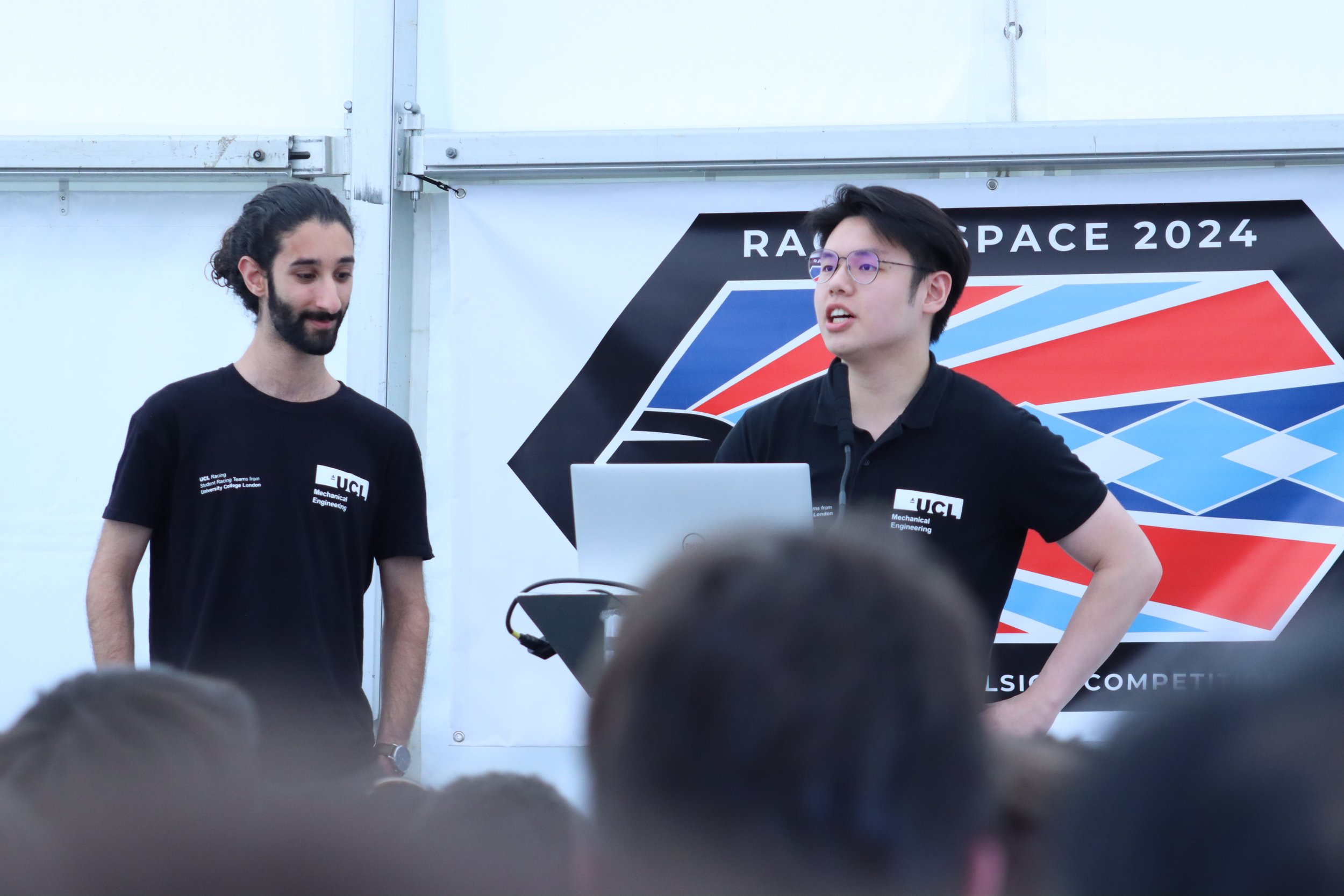UCL Rocket Team Joins Liquid Propulsion Development at Race 2 Space 2024
The Story Behind UCL Rocket Team’s First Liquid Bi-Propellant Engine Hot-Fire Tests
The UCL Rocket team, which is one of the youngest members among six projects led by students at UCL Racing, has already achieved impressive results during the UK’s NRC23 and MACH22 competitions. This year, however, they challenged themselves to design and hot-fire their first liquid bi-propellant engine named Meliora as one of the participants of Race 2 Space 2024.
Meliora Hot Fire Test by UCLR
UCL’s First Liquid Bi-propellant Engine
The innovative design of Meliora included a "reversed-pintle" injector, a phenolic combustion chamber and nozzle, and a graphite throat insert. The team successfully conducted cold flow water tests at MechSpace for the injector and a hydrostatic pressure test at Airborne Engineering Ltd for their pyrotechnic ignitor.
On July 8th, 2024, UCLR carried out 5 hot-fire tests out of 7 at AEL, achieving 730N of thrust, though short of their 2kN target due to injector atomisation issues. Despite falling short of their target, the insights and lessons gained from Meliora will allow the UCL Rocket team to refine their design for future iterations.
UCLR’s Presentation in Race 2 Space 2024 Symposium
UCLR’s Future Plans
The UCL Rocket team really enjoyed Race 2 Space 2024, saying it allowed them to venture into the world of liquid propulsion and general SRAD propulsion, which they had never done before. They were excited by the opportunity to design and create propulsion systems, unlike any other engineering team at UCL.
It was inspiring to see UCLR’s achievements, and we definitely look forward to seeing them again next year. The team is planning to build a second engine to improve upon their first attempt, with hopes of having a liquid rocket in the next two years.


